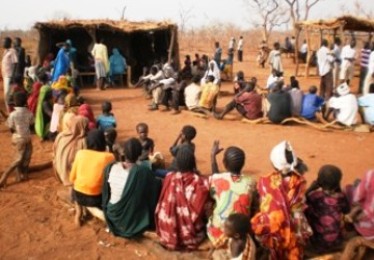UNHCR says Sudanese refugees continue to flow to South Sudan
May 18, 2016 (JUBA) – United Nations High Commission for Refugees (UNHCR) said Sudanese refugees have continued to cross border into South Sudan due to insecurity back home.

This, UNHCR statement said, represents an increase by 124 percent compared to the previous two weeks.
“They reported hunger, aerial bombardments and ground attacks as the main reasons for fleeing to South Sudan. UNHCR provided them, inter alia, with registration, reception assistance and transportation to Ajuong Thok,” it said.
UNHCR also said it continues to tackle malnutrition in Maban when UNHCR and partners reached 4,758 children under five years and two years with the first round of Blanket Supplementary Feeding Program, including 916 in Gendrassa camp, 1,600 in Kaya camp and 2,242 in Yusuf Batil camp.
“This is part of a broader response to reduce high rates of Global Acute Malnutrition (GAM) and Severe Acute Malnutrition (SAM) among refugees in Maban.”
Its Livelihood Strategy for South Sudan officially launched its 2016-2018 Livelihoods Strategy for South Sudan on 12 May, in an event gathering United Nations Agencies and non-governmental organizations (NGOs) working in this sector, including World Food Programme (WFP), Food and Agriculture Organization (FAO) and Universal Intervention and Development Organization (UNIDO).
These organizations have jointly developed a plan of action aiming at increasing refugees’ access to livelihoods opportunities and reducing dependency on humanitarian aid.
“The strategy will target both refugees (70 percent) and host community (30 percent) in refugee-hosting areas such as Central Equatoria, Western Equatoria, Upper Nile, Unity and Jonglei,” it said.
(ST)
